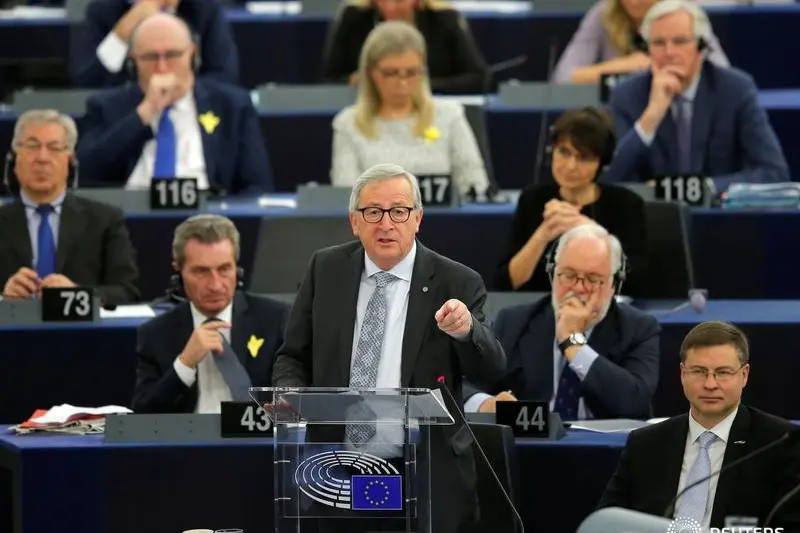PHOTO
LUXEMBOURG - European Union finance ministers took small steps towards deeper euro zone economic integration on Friday, but they failed to agree on key aspects of a planned euro zone budget, in a blow to French President Emmanuel Macron, who championed the idea.
In 2017, Macron called on the 19 countries that share the euro to create their own budget, worth several percentage points of euro zone output, to help stabilise the economy.
EU leaders agreed last December that a "budgetary instrument of competitiveness and convergence" should exist, then left its financing, size, governance and purpose for finance ministers to decide by their next summit in June.
Macron had proposed financing the euro zone budget from the existing EU budget and dedicated new taxes. The Netherlands opposed the idea of a separate euro zone budget in general, external sources of financing for it except from the EU budget, and using it to stabilise economies.
After all-night talks, no option was explicitly excluded. Discussions will continue on the sources of financing, and therefore size, as well as the possibility of using the fund for stabilisation.
"No avenue for this budget instrument was closed yesterday," the chairman of the meeting, Mario Centeno, told a news conference. "We did not exclude any dimensions and this is the important thing."
The 27 European Union ministers who took part in the talks agreed on a list of principles for the budget that they will present to EU leaders next week. Those include making the euro zone budget part of the wider EU budget and determining its size in relation to the EU budget.
The euro zone budget would finance investment and reforms, with grants paid out in installments as countries fulfill agreed criteria. Some co-financing would come from national budgets.
"It is the best agreement we could reach with the present state of play in Europe," European Commissioner for Economic and Financial Affairs Pierre Moscovici told the news conference. "We must not forget some ministers were absolutely against the principle of the euro zone budget."
The ministers also delayed any agreement on the introduction of a euro zone bank deposit insurance scheme (EDIS) because of strong resistance from Germany and its northern European allies.
A working group of senior euro zone officials is to present proposals how to move the discussion forward by December.
Centeno said the ministers had reached a "broad deal" on the reform of the euro zone's rescue fund, the European Stability Mechanism, which would be put in legal form over the next six months and ratified by euro zone governments next year.
The reform includes easier access to precautionary credit from the ESM for countries facing market difficulties and an agreement between the Commission and the ESM on how to establish whether a country's debt is sustainable.
It also includes introducing "single-limb" collective action clauses for euro zone bonds. Such clauses mean a single restructuring decision would apply to any given bond, making it less likely restructuring of sovereign debt would be obstructed by hold-outs.
(Reporting by Jan Strupczewski and Francesco Guarascio; editing by Catherine Evans, Larry King) ((Francesco.Guarascio@thomsonreuters.com; @fraguarascio; +32 2 287 68 17;))





















